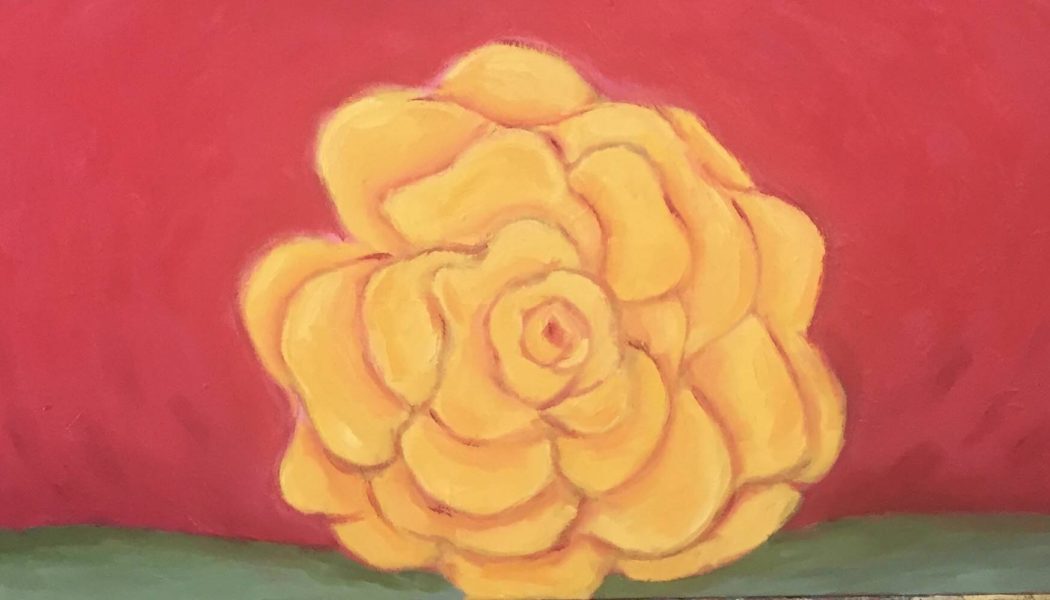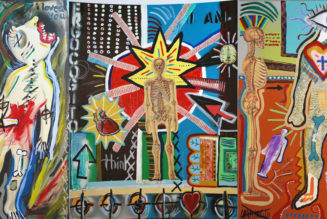by Susan Norsigian, LCPC
Art making can be a valuable tool for helping clients get through stress and trauma. But first a little practical information that might help as many of us are “stuck” at home with family 24/7. Because stress, anxiety, depression, and trauma are different for each individual, the first thing to remember (this goes for everyone, professional, family member or friend) is to accept, acknowledge and validate a person’s feelings. Anxiety often has little, no, or distorted logic to it, best illustrated in one extreme form of anxiety, OCD (Obsessive Compulsive Disorder.) One person’s stress can be another’s walk in the park. So please avoid telling someone “You shouldn’t feel that way.” Giving your loved ones space and putting aside your need to be right or convince another of how right you are (even though you may be right!) is the best way to keep the peace. You can ask yourself “How important is this in the big scheme of things? What’s important now during this pandemic?” I suggest walking, running, journaling, singing, dancing, artwork or puzzles to engage in when you become frustrated. OK, enough preaching!
When working with trauma victims I find art making can be a helpful “bridge” to eventually talking about the trauma. I often ask clients to make some kind of representation of their feelings, and this can be through abstract colors and shapes, or representational. One example of this is a boy who witnessed his mother being abused by his father. He was more agreeable to drawing a picture about the incident than verbalizing. After doing this, he was able to discuss his emotions around the abuse, his conflicted feelings and his fears about either being hurt himself or his mother being hurt again. It was also important for this boy to see something positive about his father, who he loved. I asked him to make a drawing of himself and his father and discussed with him that adults at times make mistakes and bad choices, to help him hold the dichotomy of his father being mean sometimes and being loving sometimes.
Often trauma victims have nightmares or flashbacks that are violent. One of my clients made a drawing of her nightmare, and in looking at it and talking about the elements in the dream, she was able to relate the dream to her past abuse and current fears. It may seem that discussing trauma would make it worse, and it does usually cause emotional responses. The role of the therapist when the client becomes distressed is to assist him or her in coming back to “homeostasis” and feeling calm again. This can be done by drawing or painting a positive picture, focusing on the client’s strengths, using positive self-talk, challenging distorted thoughts, or other similar means to help the client feel safe.
The subject matter is important, but the act of drawing or painting, indeed any creative activity such as play or music or dance, is an avenue for “getting it out” through symbolism or direct reference. Beneficial for all ages, this is especially helpful for children who don’t have the intellectual reasoning and verbal skills to discuss complex things. Play is often useful for children to express their fears. It’s important to allow the children to express negative thoughts and feelings during play or drawing/painting, and try to calmly discuss what’s going on and how to change behavior.
One last example of the use of art in therapy is making a “Time Line.” For adults who have lived through many ups and downs, this is a good way to take a look at the “big picture” to get a perspective on life and see their strengths as well as their challenges. Sometimes we forget how strong we really are, and we allow a current setback to send us spiraling downward. A time line can also allow a person to recognize patterns in their behavior, and try to change the problematic ones.
I wish all of you good mental and physical health during this difficult time.
Susan Norsigian is a Licensed Clinical Professional Counselor in private practice in the StL Metro area.
She can be reached at 618-223-4502 / snorsigian@gmail.com.










